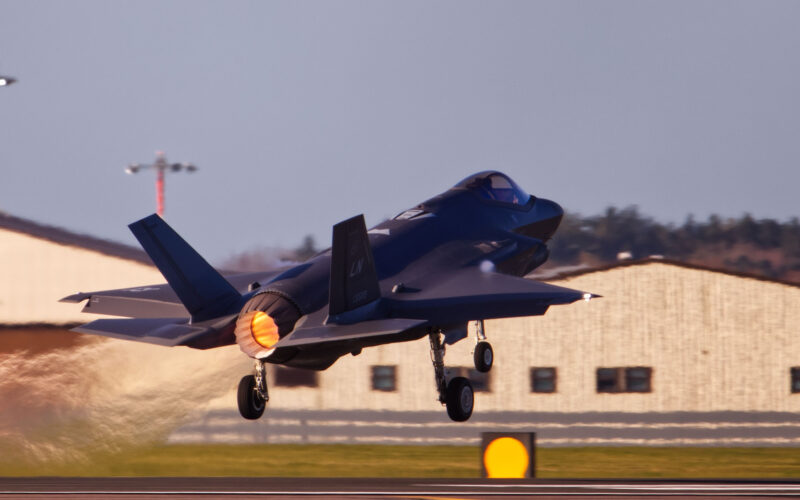Though a choice on the matter has already been made by the US Air Force, the future of the F-35 fighter jet engine continues to be a topic of intense debate as companies involved in the program voice their opinions on crucial upgrades.
The F-35 Block 4, expected to be heavier and have increased energy requirements, necessitates a more powerful engine. Two options were under consideration – Pratt & Whitney’s improved F-135 engine and GE Aviation’s XA-100, an adaptive cycle engine developed as part of the Adaptive Engine Transition Program (AETP) program.
In March 2023, USAF Secretary Frank Kendall announced that the improved F-135 engine would be selected over the XA-100 due to concerns over the cost of the latter and doubts about its compatibility with all F-35 variants. Kendall emphasized that integrating the XA-100 engine with the F-35B variant used by the US Marine Corps would be extremely difficult, if not impossible.
P&W made the case for the upgraded F135 engine, known as the Enhanced Core Upgrade (ECU), in a briefing during the Paris Air Show 2023.
“Multiple business cases were assessed, showing that the upgrade was the way to go,” Jill Albertelli, president of Military Engines for Pratt & Whitney, stated. “It is the only combat-proven tested engine out there that can fit all three variants [the F-35A, B, and C – ed. note]. A new engine would cost billions more.”
The ECU is expected for 2028, and efforts are currently focused on achieving Technology Readiness Level 6 (TRL6) by the end of 2023.
But the debate was reignited as Greg Ulmer, the executive vice-president of Lockheed Martin, expressed his support for equipping the advanced fighter jet with an AETP-type engine.
“I do advocate for the AETP, another engine,” said Ulmer, Lockheed’s executive vice president of aeronautics during an interview with Breaking Defense at the Paris Air Show 2023. “I think some of the approaches today are very short-sighted and not considering a longer-term view.”
Albertelli reacted strongly to the comment through the media.
“Lockheed Martin wants to put an unproven adaptive engine on a single engine fighter jet, regardless of the hefty price tag and the significant delay in delivering critical capabilities to the warfighter at a time of urgent need,” she said in an emailed statement to Defense News.

